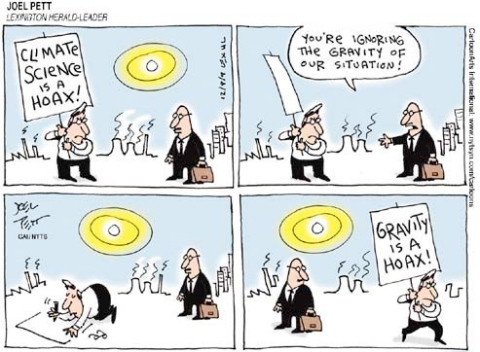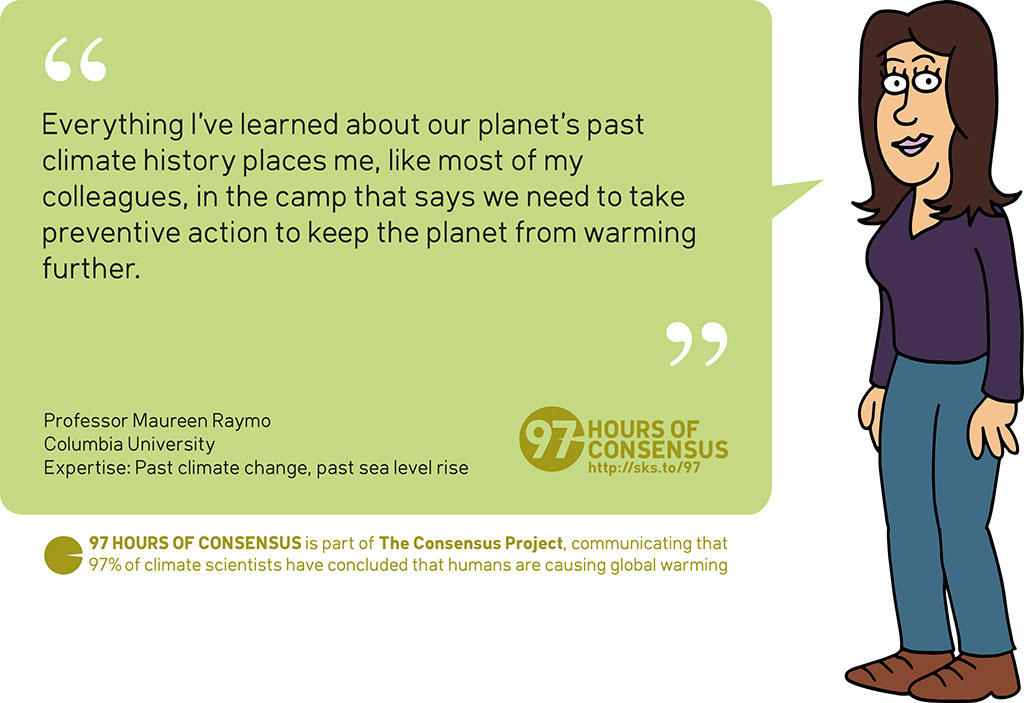
SkS Highlights... Toon of the Week... Quote of the Week... Graphic of the Week... Rebuttal Article Update... He Said What?... SkS in the News... SkS Spotlights... Coming Soon on SkS... Poster of the Week... SkS Week in Review... 97 Hours of Consensus...
Using the metric of comments garnered, Naïve empiricism and what theory suggests about errors in observed global warming by Victor Venema was the most popular of the articles posted on SkS during the past week. (Click here to access the profile of Victor posted on his website, Variable Variability.)

July was the hottest month in recorded history, by a lot, and August isn’t looking any better. So how do we interpret that? What does it mean?
I’m no scientist. In my 30 years as a businessperson, though, I’ve learned that the best decisions require looking at all of the available data and trends. You seldom have the complete analysis that a scientist would require — events unfold quickly.
Instead, businesspeople often must make decisions on the basis of imperfect information. A responsible chief executive knows two things: that a decision not to act is a decision, and that no competent leader risks the health of the entire enterprise by failing to take necessary steps, even ones that are painful.
- Tom Steyer, founder of the advocacy group NextGen Climate.
Can progress on climate change keep up with its quickening pace?, Op-ed by Tom Steyer, Washington Post, Aug 26, 2016
Sixteen years of change in the global human footprint
The human footprint map measures the cumulative impact of direct pressures on nature from human activities. It includes eight inputs:
The Spectator is one of the oldest English language magazines on the planet, established in London in 1828. Chances are if you’ve never read it, you’ve probably heard of it.
The Marine Biologist magazine, on the other hand, was only launched in 2013. With no disrespect to the good people there, chances are you’ve neither heard of it, read it or are aware of its very existence.
But earlier this week the Marine Biologist’s website published an eviscerating 2,500-word analysis of an April column that had appeared in The Spectator.
The column, written by climate science denier and polemicist James Delingpole, had tried to claim the science linking the burning of fossil fuels to the acidification of our oceans was “fatally flawed”.
Marine life, claimed Delingpole, had “nothing to fear” from ocean acidification.
Published back in April, Delingpole strung together what must, to some, have seemed a compelling narrative.
He had citations, “experts” and more scientific terminology than you could shake a stick at (or a copy of Marine Biologist, if you had one handy).
The problem?
“Almost everything that could be factually wrong, is wrong,” wrote Dr Phillip Williamson, on the website of your new favourite magazine, the Marine Biologist.
Coordinator of UK Ocean Acidification Research Attacks The Spectator for 'Willfully Misleading' James Delingpole Column by Graham Readfearn, DeSmog, Aug 26, 2016
Founded by Tom Styer, NextGen Climate acts politically to prevent climate disaster and promote prosperity for every American.


Quote derived with permission from author from:
"... everything I’ve learned about the dynamism of the planet’s climate places me, like most all of my colleagues, strongly in the camp that says we need to take preventive action to keep the planet from warming further. I am extremely concerned that we’ve made such large changes in the composition of our atmosphere with so little understanding of the consequences. The path we are on is completely anomalous to anything that has gone before."
High resolution JPEG (1024 pixels wide)
Posted by John Hartz on Sunday, 28 August, 2016
 |
The Skeptical Science website by Skeptical Science is licensed under a Creative Commons Attribution 3.0 Unported License. |